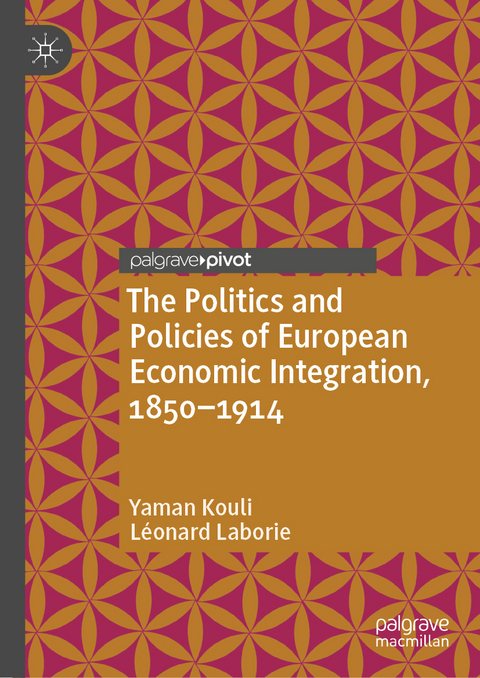
The Politics and Policies of European Economic Integration, 1850–1914
Springer International Publishing (Verlag)
978-3-031-00295-3 (ISBN)
This book asks anew whether there really was European integration before 1914. By focussing on quantitative (economic indicators) and qualitative data (the international regulation of patents, communication networks, social policy and plant protection), the authors re-evaluate European integration of the time and address the politics of seemingly apolitical cooperation. The authors show that European integration was multifaceted and cooperation less the result of intent, than of incentives. National polities and international regimes co-shaped each other. The result is a book that achieves two things: offer stand-alone chapters that shed light on specific developments and - these read altogether - develop a bigger picture. It will be of interest to researchers and students of economic history, as well as those interested in the history of internationalism and globalisation.
lt;p>Yaman Kouli is currently researcher at the Heinrich-Heine-University in Düsseldorf. From 2007 to 2010, he was a member of the graduate school "Archives-Might-Power" at the University of Bielefeld. In 2012, he received his PhD from Chemnitz University of Technology, where he was a research assistant until March 2018. From 2012 to 2013, he was also an A.SK-fellow at the Berlin Social Science Center. From 2018 to 2020, he was Feodor-Lynen-Fellow and received a scholarship from the Alexander von Humboldt-Foundation. From October 2019 on, he will assume his position as a research assistant at the Heinrich-Heine-University in Düsseldorf. His fields of expertise are Poland's economic history during the 20th century, the knowledge-based economy and European integration.
Léonard Laborie has been a Research Fellow at the CNRS, UMR Sirice (Paris) since 2010. He received his PhD in contemporary history from Sorbonne University (2006). His research deals with the interactions between science, technology and diplomacy in the making of Europe since the 1850s, with a focus on communication infrastructures.
Chapter 1: Introduction. European economic integration and international coordination in the first globalisation era, 1850-1914.- Chapter 2: European economic integration before 1914 - a closer look.- Chapter 3: The European making of national public services - Posts and Telegraphs.- Chapter 4: Inventing Foreign Patents in Globalising Europe.- Chapter 5: Keeping international order in good health: plant protection.- Chapter 6: Social policy - from a prisoner's dilemma to a European cartel.- Chapter 7: Conclusion.
"The Politics and Policies of European Economic Integration, 1850-1914 combines an older existing strand of the literature-the role of technology in European integration pioneered by the Tensions of Europe network- with a relatively newer one ... . the book offers new understandings of how international organization-in the broadest sense of the term-took shape in the European realm since the nineteenth century." (Vincent Lagendijk, Technology and Culture, Vol. 65 (1), January, 2024)
| Erscheinungsdatum | 05.01.2023 |
|---|---|
| Reihe/Serie | Palgrave Studies in Economic History |
| Zusatzinfo | XIII, 169 p. 12 illus., 10 illus. in color. |
| Verlagsort | Cham |
| Sprache | englisch |
| Maße | 148 x 210 mm |
| Gewicht | 340 g |
| Themenwelt | Recht / Steuern |
| Wirtschaft ► Allgemeines / Lexika | |
| Wirtschaft ► Volkswirtschaftslehre ► Makroökonomie | |
| Schlagworte | Globalisation • internationalism • Labour Protection • nation state • Patent policy • Telegraphy |
| ISBN-10 | 3-031-00295-4 / 3031002954 |
| ISBN-13 | 978-3-031-00295-3 / 9783031002953 |
| Zustand | Neuware |
| Informationen gemäß Produktsicherheitsverordnung (GPSR) | |
| Haben Sie eine Frage zum Produkt? |
aus dem Bereich


